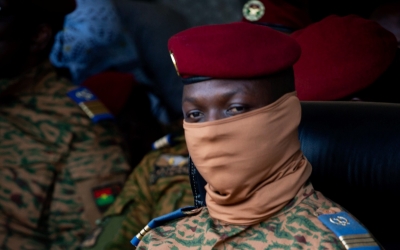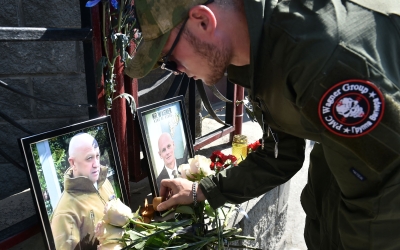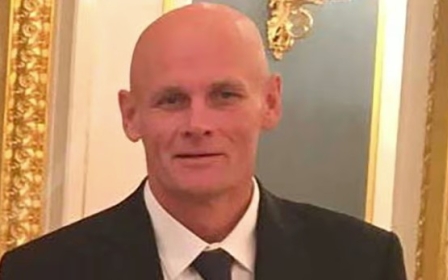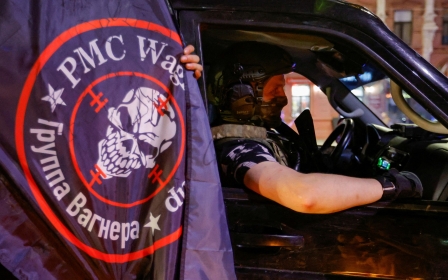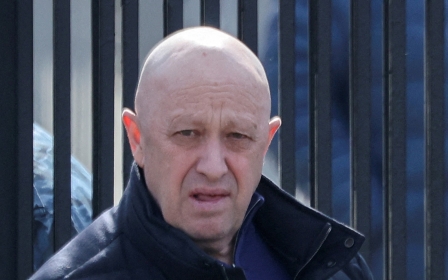Wagner has no contingency plan to deal with death of its leadership
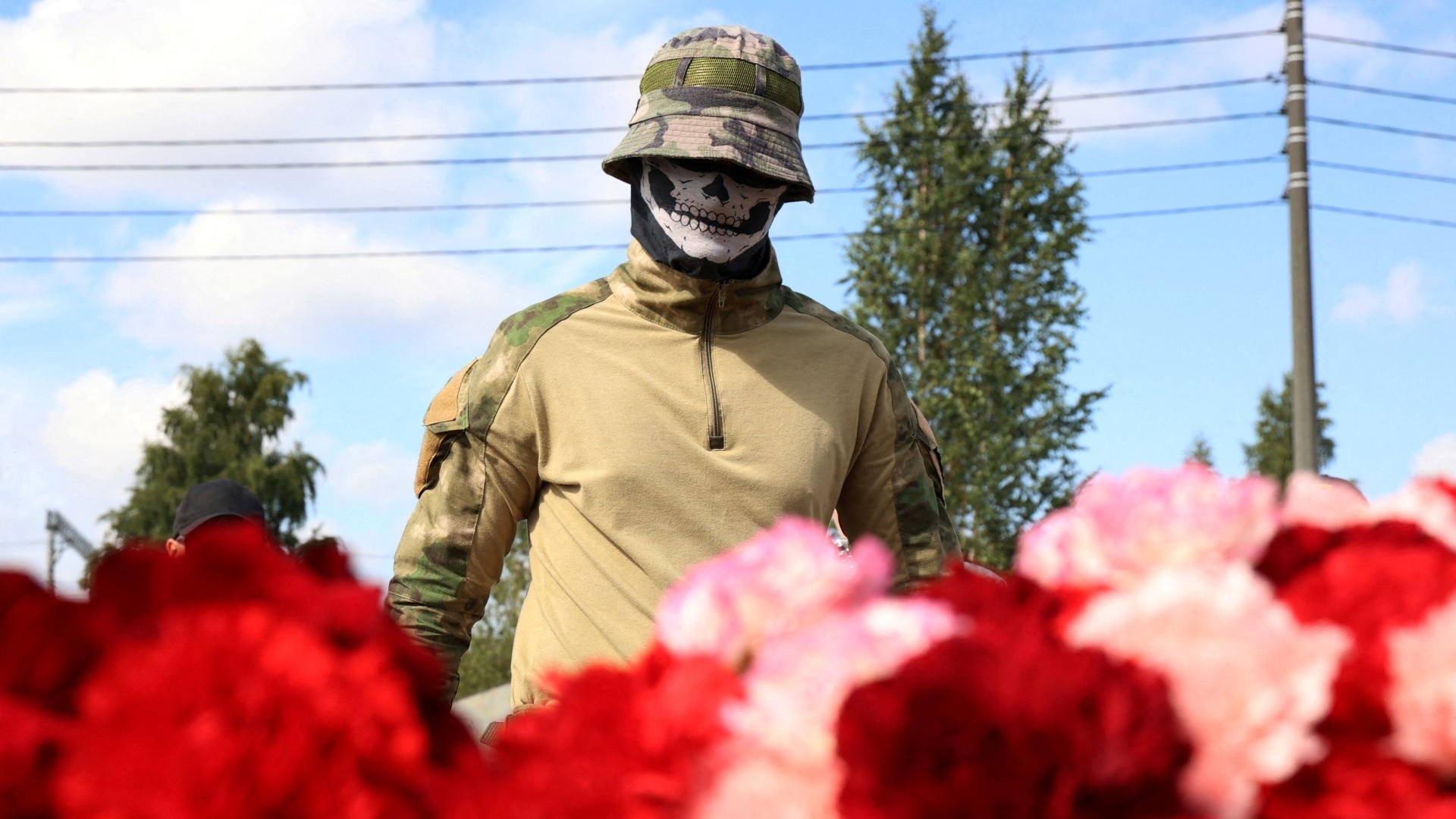
The Wagner Group has no contingency plan to keep its operations working as normal following the death of Yevgeny Prigozhin and the rest of its senior leadership, three sources directly involved with the Russian organisation told Middle East Eye.
A private jet believed to be carrying Prigozhin and other Wagner leaders crashed in Russia on Wednesday, weeks after they staged a brief mutiny against Vladimir Putin and the Russian military leadership.
Russian authorities launched an official investigation into the crash, but there is little doubt among MEE's sources that Prigozhin was killed on Putin's orders, especially after the president accused him of treason in June.
Over the past decade, Prigozhin built a spider's web network of military, business and political relationships in the Middle East and Africa, including Libya, Syria, Sudan and the United Arab Emirates.
Wagner forces had also until recently been a crucial asset supporting the Russian military on the battlefield in Ukraine. The force provided Russia with its first recent discernible victory, when it captured the symbolic town of Bakhmut in May.
So when footage emerged late on Wednesday purportedly of Wagner fighters vowing revenge against Prigozhin's killers, expectations were raised that plans were in place for a reaction.
'It would be stupid to say that Wagner has not disintegrated. Prigozhin and his second-in-line Dmitri Utkin's death totally shocked people'
- Wagner source
Wagner's approximately 25,000-strong force includes many ardent Prigozhin supporters who are far-right ultranationalists that are critical of how the Russian defence ministry has handled the Ukraine war.
Many accuse Defence Minister Sergei Shoigu and top commander Valery Gerasimov of treason and mishandling of the invasion.
"It would be stupid to say that Wagner has not disintegrated," one source directly involved with the company told MEE.
"Prigozhin and his second-in-line Dmitri Utkin's death totally shocked people. If there were any contingency plans, I'm sure they didn't include the possibility of their death together."
The source said the remaining members of the company's leadership council wouldn't dare challenge Russian intelligence, believed by some to have planned the plane crash, as they were already scared after the state responded to their mutiny with threats.
"There is no longer a council governing Wagner. All the key decision-makers are dead. Others are just trying to survive," the source added.
No functioning leadership council
Russian media outlet Fontanka reported on Thursday that Wagner's recruitment office wasn't responding to the calls and directing them to voicemail. And calls to Wagner's general headquarters in St Petersburg were dropping or receiving an automatic message that the number was temporarily unavailable.
A second source, who is directly involved in Wagner's international operations, concurred that many members of the leadership council distanced themselves from Prigozhin and his close circle following the mutiny, and said they tried to approach powerful oligarchs who have friendly relations with Kremlin.
Notably, earlier this month Putin fired General Sergei Surovikin, who for months was in charge of Russia's invasion of Ukraine as air force chief. He was seen as close to Prigozhin and hadn't been seen since the rebellion mutiny.
"Putin destroyed the right-wing elements within the military intelligence," the second source said. "Everyone talked about how Putin fired General Sergei Surovikin, but he was the tip of the iceberg, he took out the entire chain."
The source added that Prigozhin was undermined even before the rebellion, as Russian military intelligence had been working against him.
"Prigozhin wasn't able to get the support he hoped for from the military council during the rebellion," they added. "He was only able to march forward with a couple of thousands of people, it was like a morning walk in Siberia."
Telegram accounts considered close to Wagner confirm that the organisation currently doesn't have a functioning leadership.
Alex Parker Returns, one of the most outspoken pro-Wagner accounts, said that some of the Wagner commanders had been arrested by the authorities and others were only able to survive because they were on the second plane owned by Prigozhin flying at the same time.
Open-source data indicated that Prigozhin's second plane landed back in Moscow on Wednesday and then flew to Baku on Thursday.
"Roughly speaking, there is no longer any council of Wagner PMC commanders," said the Telegram channel.
'Killing the leaders of organisations like Wagner can make you look strong, but it also causes serious problems'
- Source involved with Wagner's international operations
The second source said that it wouldn't be easy to carry on with Wagner's operations around the globe as normal because it was all coordinated by Prigozhin and his close circle.
The source said Wagner was very much like the structure that was founded by Fethullah Gulen and his followers in Turkey, who are accused of being behind the 2016 coup attempt.
"It is an enormous network that is founded on personal trust and relations, it is really complex," the source said. "But Putin decided to destroy this structure even though it will probably have severe consequences."
Both sources said that some elements within Wagner's fighting force are furious and are looking for revenge, and Shoigu could be a target, especially in Ukraine.
"All the mid-level leaders who could lead the Wagner warriors right now are fanatical nationalists and they agree that what was done was betrayal," the second source said.
"Wagner has an intelligence network and is somehow working with untraceable cash. For Putin, killing Wagner's leaders was thus turning an organisation he could not control into his enemies.
"At least it made a serious radical group within the organisation hostile. Killing the leaders of organisations like Wagner can make you look strong, but it also causes serious problems."
Controlling the damage
Putin, according to all three sources, is trying to control the damage by recruiting Wagner forces to the Russian defence ministry or affiliated private military companies. One of the companies that is under the spotlight is Redut, which was founded in 2008 by the veterans of Russian security services.
The sources said that the bulk of prisoners recruited by Wagner with the promise of amnesty has been directly transferred to the command of the defence ministry, and other Wagner fighters who joined the mutiny were exiled to Belarus.
The second source said some Wagner forces switched to Redut after the rebellion.
"Redut, who had several special contracts with the GRU [military intelligence], acted on behalf of the defence ministry to contain some Wagner elements. But even after the revolt, Wagner's radical factions either rejected the offer or relocated before the ministry reached them," the source said.
The source noted that Redut and Wagner are two apples from the same tree.
"However, there is a definite difference in that Redut is acting under the control of the Kremlin through the GRU. Redut's teams act as GRU employees within special units attached to the GRU. In this respect, Shoigu is in control," they said.
"But it is not possible for the ministry to put all of Wagner under Redut's control. Redut is not a group designed for an operation of this scale."
The first source added that Putin's goal wasn't to take control of Wagner but to kill a rival.
"Without Utkin, there is no one to deal with the soldiers. Without Prigozhin, there is no one to make agreements, to negotiate with the Kremlin and to persuade the oligarchs. That's enough to destroy the company already," the source said.
"For a while, Wagner elements might begin to take personal action. The next few months will be spent talking about intelligence vulnerabilities for the Kremlin, what Wagner employees are doing in Africa. Putin may have to declare an amnesty on some issues."
Cheka-OGPU, a Telegram account that is considered to be close to Russian security services, said that members of Wagner, Prigozhin's Patriot media company and other structures linked to him came to Wagner's office in St Petersburg on Thursday night, and took away computers, gadgets and papers.
"Apparently, they acted on someone's go-ahead, since everyone took only their own device. Many after that 'left the connection' and are inaccessible to acquaintances," the channel added.
This article is available in French on Middle East Eye French edition.
Middle East Eye propose une couverture et une analyse indépendantes et incomparables du Moyen-Orient, de l’Afrique du Nord et d’autres régions du monde. Pour en savoir plus sur la reprise de ce contenu et les frais qui s’appliquent, veuillez remplir ce formulaire [en anglais]. Pour en savoir plus sur MEE, cliquez ici [en anglais].


